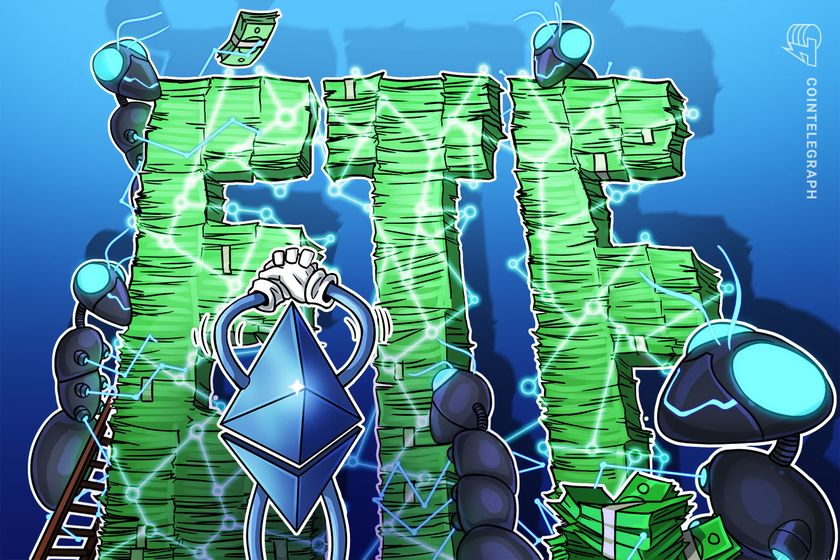Crypto needs a decentralized daily reference rate

The crypto industry still lacks one of the most crucial metrics in the ecosystem: an official daily reference exchange rate.
“If you can’t measure it, you can’t manage it” is probably the most cited quote attributed to Peter Drucker, who is known as the father of management thinking. While the quote is apocryphal, nevertheless it gained its place in the pantheon of business books because it highlights the importance of reliable metrics in making sound business decisions. In the crypto space, we are still missing one of the most important metrics: an official daily reference exchange rate.
A reference rate is vital in allowing accountants to assign a particular exchange value between two or more currencies on any given date, even though those currencies may have fluctuated outside the specific time. The reference rate is a shared benchmark for companies, investors, auditors and regulators.
It’s not by chance that more than 10 years after the first Bitcoin (BTC) was mined, we still lack this crucial metric in the ecosystem. In the fiat economy, central banks are in charge of fixing a reference exchange rate, based on a regular daily basis concertation procedure. But in crypto, we don’t have a notion of a central bank — we outright reject the concept of a centralized monetary authority. The outcome, though, is a fragmented landscape of unofficial rates with different exchanges and aggregators having different prices that can lead to confusion and, in some cases, fraud.
Related: Professional traders need a global crypto sea, not hundreds of lakes
You may wonder: Why is this so important, anyway? Perhaps the decentralized economy doesn’t need an official daily reference rate. Maybe this was true a few years ago, but not anymore. The crypto markets are inexorably growing in size, market capitalization and adoption. Studies suggest we have reached over 100 million crypto owners around the globe — roughly the size of the population of Egypt. There are around 43 million active crypto traders and up to 500,000 unique daily users sending or receiving cryptocurrencies.
We knew the recent crypto rally would spur a new surge of interest in crypto assets, especially with its equally predictable hype. But we also know that with every wave of “blockchain tourism,” the industry gets bigger. This time, the market and players have behaved differently from the last crypto frenzy in 2017. More and more institutional investors are onboarding, making the market more sophisticated and complex, and definitely more mature.
Related: The remaining steps to mainstream institutional investment
Those of us who have been around long enough in the crypto space also know that behind the markets’ ups and downs are a legion of brilliant people building amazing projects in the blockchain and crypto sphere. At this stage, the decentralized ecosystem has many companies working in a wide range of specialties all over different jurisdictions. However, this implies that you need to account for the value of those transactions. You need to plan budgets, value assets, pay taxes and settle operations involving several currencies — crypto and fiat — at different times and even during different days of the week, to account for the time zones.
Decentralized exchange rate
The crypto “Wild West” is over, and that means asset values can no longer be up for interpretation. We need an official reference rate, and without it, accountants can’t accurately value crypto held on balance sheets. This leaves the door open for fraud and slows the progress of crypto as a mainstream asset on corporate books. Audit and compliance concerns were among the six biggest barriers to blockchain adoption, according to PricewaterhouseCoopers’ (PwC) “2018 Global Blockchain Survey.”
A reference rate would bring benefits to key players in decentralized finance. For accountants, it would be a shared, standard way to value crypto assets, giving them stronger fraud protections. For investors, it would provide a true apples-to-apples comparison when evaluating investment opportunities. For auditors, it would provide a tool to independently verify that a company is properly valuing its assets — and not committing fraud.
From an accounting perspective, the current system is a nightmare. A handful of players have set themselves up as the authorities fixing the rates. There is a lack of a proper set of rules and details on where the information came from and at what point in time. This leads to considerable price spreads among the different, unofficial exchange rate sources.
For those of us who have devoted ourselves to building decentralized accounting protocols, it is natural that we are looking into decentralized solutions. Now, as Chainlink decentralized price feeds become de-facto standards, it’s time to keep innovating and develop an official reference rate for all crypto assets that is transparent, independent and methodologically sound. A widely shared daily exchange rate that investors, businesses and auditors can rely on to value any crypto assets and foreign exchange transactions at the end of any given period.
The current consensus is to “hold” your crypto on the balance sheet as a hedge against inflation. But we need to prepare for a future where brick-and-mortar businesses begin to experiment with billing in their favorite cryptocurrencies for goods and services, drawing up contracts with crypto values, paying suppliers and employees and settling their taxes with crypto. That is the future that we are working for, and that’s why crypto needs a decentralized daily reference rate.
This article does not contain investment advice or recommendations. Every investment and trading move involves risk, and readers should conduct their own research when making a decision.
The views, thoughts and opinions expressed here are the author’s alone and do not necessarily reflect or represent the views and opinions of Cointelegraph.









